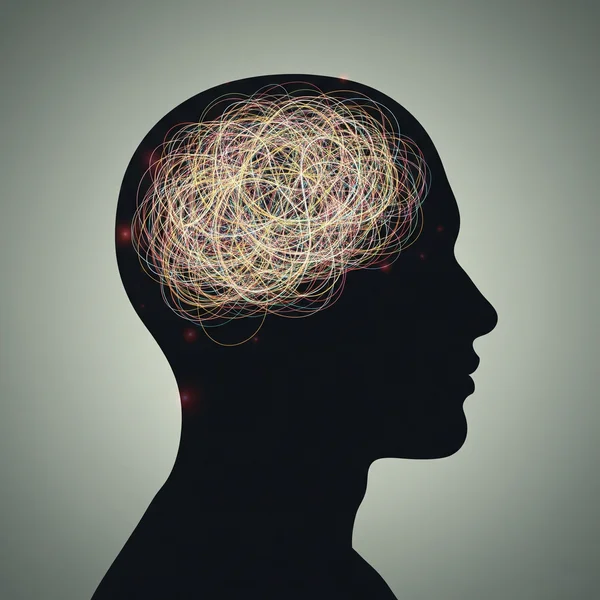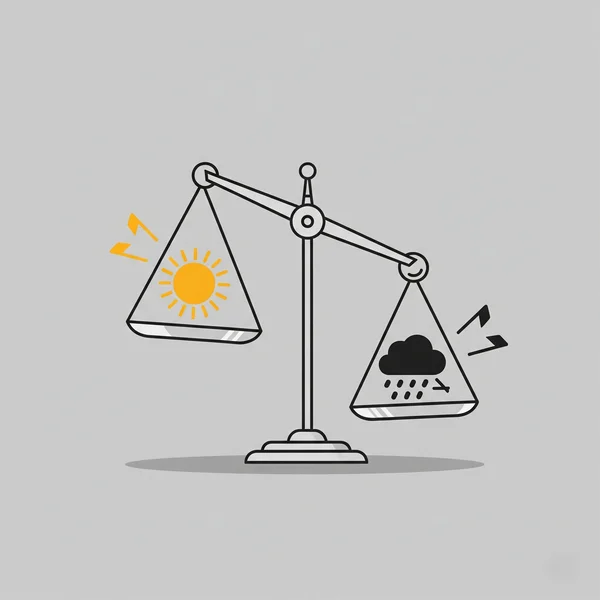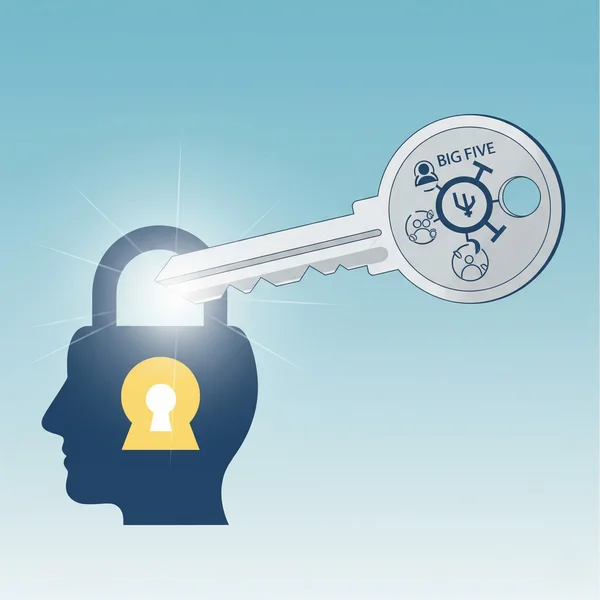High in Neuroticism? 10 Key Signs to Look For
July 6, 2025 | By Alicia Campos
Do you often find yourself caught in a loop of worry, replaying conversations in your head, or feeling emotionally sensitive to everyday stress? If so, you might be asking yourself, "How do I know if I have neuroticism?" This is a common question for anyone seeking to understand their emotional landscape better. Recognizing the signs of this core personality trait is the first step toward greater self-awareness and emotional management. To get a clear, science-backed picture, you can take our free Neuroticism Test and discover where you fall on the spectrum.
First, What is Neuroticism in the Big Five Model?
Before we dive into the specific signs, it's important to understand what is neuroticism. It's one of the core personality traits in the widely respected Big Five Model of personality. Neuroticism isn't a flaw; it's a dimension of personality that reflects an individual's tendency to experience negative emotions like anxiety, anger, self-consciousness, and sadness. Think of it as a spectrum—some people are naturally more emotionally resilient, while others are more sensitive to emotional turbulence. Understanding this trait is key to unlocking your personal patterns.

10 Common Signs You Might Have High Neuroticism
What are the signs of a neurotic person? If you identify with several of the following points, it may indicate that you score higher on the neuroticism scale.
Sign 1: You Tend to Worry Constantly (Even About Small Things)
A hallmark sign is the tendency to worry constantly. This isn't just about big life events; it's about the small, everyday things too. You might find yourself worrying about a meeting that went well, a comment a friend made, or what might happen tomorrow. This pattern of overthinking can feel exhausting and persistent.
Sign 2: You Experience Frequent Mood Swings or Emotional Instability
Do you feel like you're on an emotional rollercoaster? High neuroticism is often linked to frequent mood swings. You might feel happy one moment and then quickly shift to feeling irritable or sad without a clear external cause. This emotional instability can make it challenging to maintain a consistent mood.
Sign 3: You're Highly Self-Conscious and Fear Judgment
Being highly self-conscious is another key indicator. You might worry excessively about what others think of you, leading you to feel uncomfortable in social situations. This fear of judgment can sometimes cause you to avoid social events or hold back from expressing your true self.
Sign 4: You Struggle to Handle Stressful Situations
Everyone experiences stress, but how you handle stress is telling. Individuals high in neuroticism often find stress to be overwhelming. A minor setback at work or a small disagreement can feel like a major crisis, making it difficult to cope effectively and bounce back.
Sign 5: You Often Feel Anxious or Tense
A persistent feeling of being anxious or on-edge is common. This isn't just about specific phobias; it's a general state of unease that can permeate your daily life, even when things are going smoothly. You might experience physical symptoms like a racing heart or muscle tension.

Sign 6: You're Prone to Irritability and Frustration
Do minor inconveniences easily trigger feelings of irritability or frustration? If you find your patience wearing thin quickly over small things—like traffic, a slow computer, or a misplaced item—it could be a sign of this underlying personality trait.
Sign 7: You Have a Tendency Towards Sadness or Melancholy
While everyone feels sad sometimes, a predisposition towards sadness or melancholy is characteristic of high neuroticism. You may find yourself more susceptible to feelings of disappointment, hopelessness, or general unhappiness compared to others.
Sign 8: You Take Criticism Personally
How do you react to feedback? People with high neuroticism often take criticism personally, even when it's meant to be constructive. A simple suggestion for improvement can feel like a deep personal attack, leading to feelings of hurt or defensiveness.
Sign 9: You Engage in Self-Critical Overthinking
Overthinking is a common thread, but it's often paired with harsh self-criticism. You might endlessly analyze your past actions, focusing on your perceived mistakes and flaws. This inner critic can be loud and unforgiving, impacting your self-esteem.
Sign 10: You Often Experience Feelings of Envy or Jealousy
Experiencing feelings of envy, jealousy, or resentment more intensely or frequently than others can also be a sign. You might compare yourself to others unfavorably, focusing on what they have that you don't, which can fuel feelings of inadequacy.

Ready to Know for Sure? Take Our High Neuroticism Test
Reading through these signs might bring a sense of recognition. But self-identification is just the beginning. The most effective way to understand your unique personality profile is through a standardized assessment. Our high neuroticism test is designed based on the Big Five model to give you an accurate, confidential score. It's free, takes only a few minutes, and provides instant results to help you move from wondering "am I neurotic?" to knowing.
Understanding Your Score: Self-Awareness is the First Step
Receiving a high score on a neuroticism test isn't a life sentence or a negative label. It's a powerful tool for self-awareness. Knowing your tendencies allows you to develop targeted strategies for managing stress, regulating your emotions, and building healthier relationships. It empowers you to turn potential challenges into strengths, like using your risk-awareness to make thoughtful decisions.
Which of these signs resonated with you the most? Share your thoughts in the comments below—your experience could help others feel understood.
Frequently Asked Questions About Neuroticism
Is being high in neuroticism a mental illness?
No, it's crucial to understand this distinction. Neuroticism is a personality trait, not a mental illness. While high neuroticism can be a risk factor for developing conditions like anxiety or depression, having the trait itself does not mean you have a disorder. Many highly successful and well-adjusted people score high in neuroticism.
What is the difference between neuroticism and anxiety?
This is a great question. Think of neuroticism as the broader category and anxiety as one specific part of it. Neuroticism is the general tendency to experience negative emotions, which includes anxiety, sadness, irritability, and self-consciousness. Anxiety is a specific feeling of fear, dread, and unease. A person high in neuroticism is more likely to experience anxiety, but they experience other negative emotions as well.
Can I change or lower my neuroticism?
While core personality traits are relatively stable, they are not set in stone. Research shows that personality can change over time through life experiences and conscious effort. You can learn techniques from cognitive-behavioral therapy (CBT), practice mindfulness, and develop healthier coping mechanisms to manage the challenging aspects of neuroticism. Understanding your baseline through a scientific personality test for neuroticism can be a helpful starting point for this journey of personal growth.